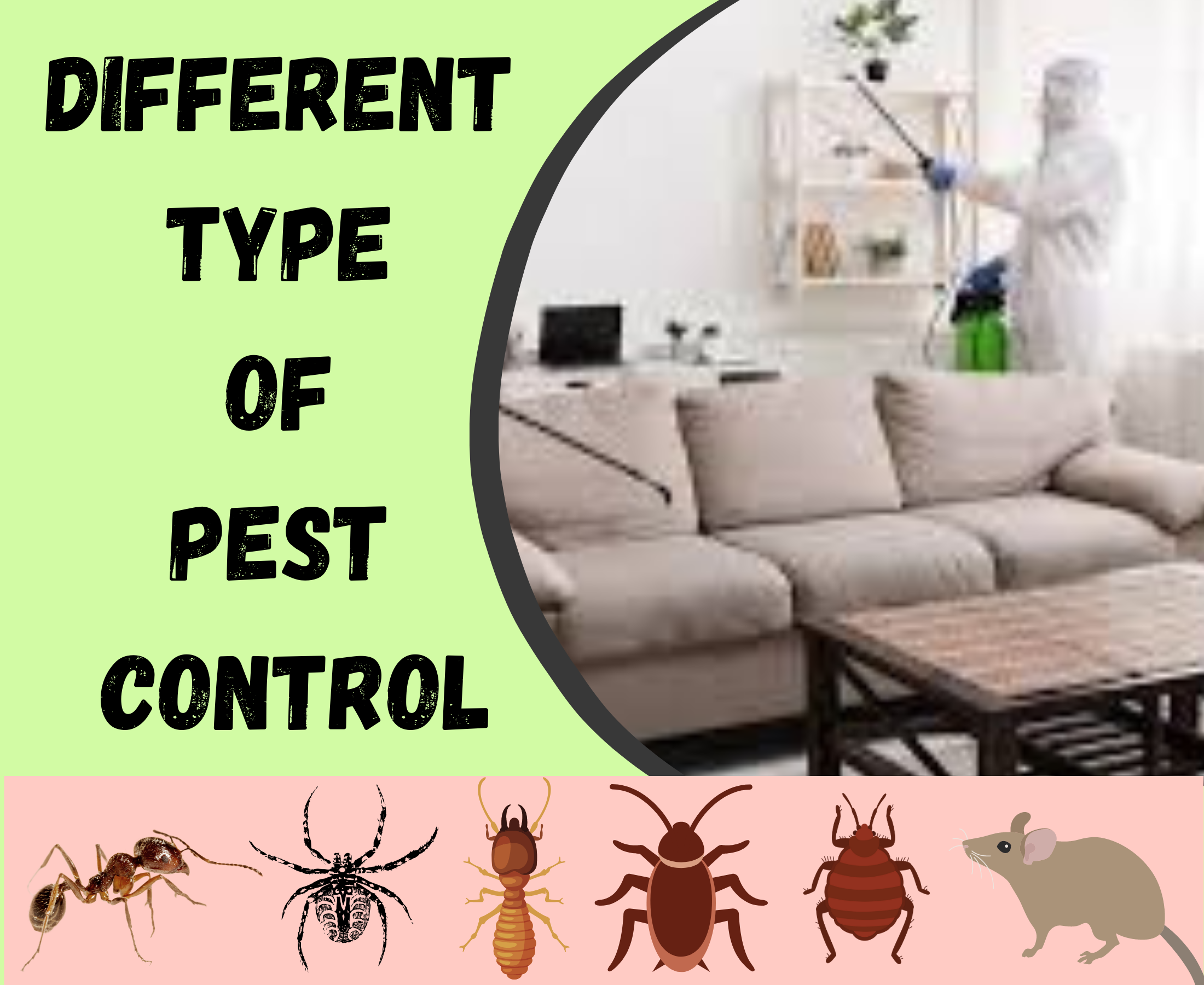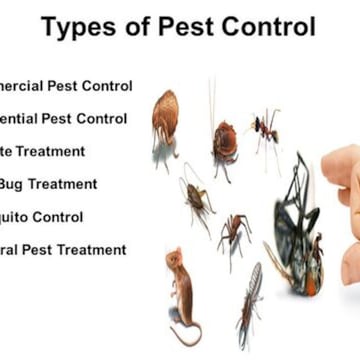Pest Control Fundamentals Explained
Table of ContentsThe Definitive Guide to Pest Control7 Easy Facts About Pest Control ExplainedPest Control Things To Know Before You Get ThisFascination About Pest ControlGetting My Pest Control To WorkPest Control Can Be Fun For Anyone
Our findings show that the first assessment will cost anywhere from $160-$300 on standard. This typically costs anywhere in between $400-$1000 for the whole year's protection, with monthly or bi-monthly brows through already rolled into the final price.Depending on the issue, a work that requires a single go to normally costs $300 to $550. These are the simplest costs to outline in your insect control costs list.
Insects that usually requires recurring visits consist of: Cockroaches. Spiders. Termites. Ticks. Rodents. Our findings reveal that an initial see is regarding $180 and is the initial of a continuous agreement. The initial check out is where you do the investigating that will certainly assist you determine a remedy. During this initial see, you ought to: Analyze the problem. Pest Control.
12-month agreement. Generally, the frequency of regular visits is: Every month: $40 45. Every two months (semi-monthly): $50 60. Every 3 months (quarterly): $100 300. Insect control is a chemically-intensive company. Chemicals are the vital materials that pest control operators use to finish a job. Usual chemicals consist of: Boric acid.
Not known Facts About Pest Control
Necessary products and supplies you'll make use of include: Respirator. Sprayer. Gloves. Duster. Foamer Baiting devices. UV light. Various other safety devices. It's essential to have all of the right tools prior to starting a task. Your devices ought to be included as part of your expenses expenses. If you have staff members, then labor expenses are going to be the most significant expenses for your business.
Limitations of Chemical Monitoring Be able to evaluate parasite problems, determine if administration is needed, and make ideal suggestions using IPM methods. Recognize with various techniques of insect administration - their advantages and restrictions. Recognize the value of useful bugs. It is not possibleor even desirableto rid gardens of all parasites.
This phase discusses (IPM), a method that uses knowledge concerning bugs and their, practices, nonchemical approaches, and chemicals to handle parasite troubles. Additional info concerning IPM for specific plants is included in phases that focus on those plants. Nonchemical bug control procedures are stressed in chapter 17, "Organic Horticulture." Managing birds and animals is covered in chapter 20, "Wildlife." Handling in the backyard and garden is covered in phase 6, "Weeds." Pests in a yard or landscape might include insects and mites, weeds,, mammals, and birds.
The Only Guide for Pest Control
Lots of people hurry to pull, hoe, or spray every weed they see. Insects and weeds, nonetheless, contribute in the. After growing a garden or developing a grass, the all-natural procedure of plant sequence starts to reestablish and nonnative plants. A weed expanding in a yard stands for the initial stage in a series of occasions that, if permitted to proceed, can ultimately result in a woodland.
What we call "insects" are part of an all-natural system at job. Only people take into consideration specific types pests when they take place where they are not desired.
Insects vulnerable to a chemical were swiftly killed, leaving resistant ones to breed and multiply. It ended up being clear that pesticides alone would not fix all parasite issues. Instead, overuse of pesticides created the advancement of immune bugs. Scientists began to develop a new strategy to pest control. This new method was called integrated bug administration (IPM).
An IPM strategy permits some level of bugs in the atmosphere. Pests are a lot less likely to make it through a program that utilizes several methods of lowering their populaces. Integrated insect administration was first recommended by entomologists because pests were the very first group of insects to verify tough to manage with chemicals alone.
The Main Principles Of Pest Control

Management instead of elimination of insects is the goal. An IPM strategy starts with a cautious examination of each bug invasion. Only after that can one determine regarding the proper techniques required to reduce parasite activities. The life process of the insect, feasible damage, natural enemies, and effects of weather, amongst various other elements, are thought about prior to a control strategy is executed.
Clover expanding in a yard might be considered as an undesirable weed, but as a bean it is synthesizing nitrogen for the soil and the blossoms are providing nectar to honey and various other. Tolerance for some weeds may belong to an IPM plan. may be eating the fallen leaves of a plant, yet when they are recognized as the larvae of Eastern tiger swallowtail butterflies, their damage might be endured so we can take pleasure in the lovely butterfly.
Figure 81. Brown lacewing larva (Hemerobiidae household). Pest Control. Matt Bertone Avoidance is the initial device in pest monitoring since it is the most efficient, least expensive, most eco-friendly solution. Choosing a healthy plant that flourishes in the preferred area with the offered light, growing it carefully, and ensuring that it has ample water and nutrients protects against stress and anxiety and reduces parasite problems.
How Pest Control can Save You Time, Stress, and Money.
The 2nd essential tool in pest management is very early treatment. Existing and observant in the garden makes certain very early discovery. Reacting to troubles promptly, before they have time to increase, requires a less remarkable intervention. The third most vital tool is recordkeeping; tracking what takes place in the yard allows a garden enthusiast to recognize patterns and make informed decisions.
Numerous secure, sensible, nonchemical methods of plant protection and insect administration might decrease or remove the requirement to spray. Various other methods are most valuable when utilized with pesticides. To execute monitoring practices appropriately and to lessen losses, gardeners should know the kinds of informative post bugs that assault plants and recognize pest biology.
Parasite administration methods come under 4 teams: social, mechanical, organic, and chemical. Maintaining plants healthy and balanced and preventing plant tension aids plants to better stand up to and repair the damages brought on by a pest or mite pest. Some proof shows that healthy plants resist problem by bugs much better than plants with reduced vitality.
Performing a dirt test and using only the advised amount of fertilizer and lime makes best use of the benefit to the plant while minimizing problems connected to extreme use of plant food. Treatment the dirt with a number of inches of compost shields the plant in a number useful site of ways: reducing dirt water loss to evaporation, reducing weed competition, providing nutrients, and creating an appropriate atmosphere for earthworms and microbes that maintain the soil loose for roots and damage down natural material to launch nutrients.
What Does Pest Control Mean?

If tilling is regarded necessary, take into consideration doing it in the loss when the life cycles of several parasites brings them near the surface area. At the surface, bugs become revealed to the climate as well as birds and other all-natural opponents. Loss tilling can likewise destroy bugs in crop residues. Usage disease-free and insect-free certified seeds and plants if readily available.